8 Key Success Strategies for European iGaming Operators
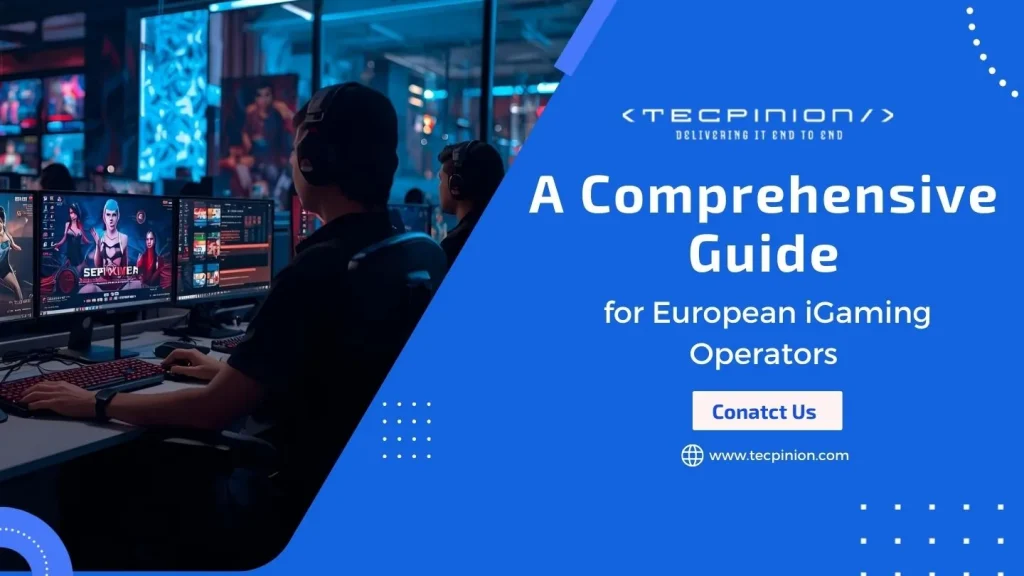
Table of Contents
- Introduction
- Regulatory Dynamics Across EU Markets
- Core Challenges and Opportunities for European iGaming Operators
- Key Market Insights into Western, Eastern, and Nordic Regions
- What are the key success strategies for European iGaming Operators?
- Top 7 Countries for iGaming Operators
- Future of European iGaming
- Conclusion
- FAQs
Introduction
The iGaming Market in Europe is highly competitive and mostly regulated compared to the rest of the world. This is why Europe has been the most enticing market for iGaming operators in recent years.
What is the role of iGaming Operators in Online Casinos?
iGaming Operators are teh one’s who offer gambling services and manages palfrom where players or users can get access to various forms of betting games. The core purpose of iGaming operators is to customise and design iGaming software that perfectly fits the organisation’s requirements.
Europe is not an independent state or a country, but a continent comprising countries such as France, Germany, Italy, and others. The iGaming Market has been regulated differently in different countries. Despite high competition, strict regulation, and heavy taxes, it still attracts iGaming operators with a friendly legal framework across multiple regions.
Market Stats:
The current value of the European online gambling market is USD 47.21 billion and is projected to grow at a CAGR of 6.46% and reach a market value of USD 64.55 billion by 2030. – Mordor Intelligence
Regulatory Dynamics Across EU Markets

Different regions in Europe operate with their own set of regulations for iGaming and gambling businesses. The emerging European operators should be very specific about the place they choose and have a deep knowledge of its legal framework. While there are opportunities for the growth of the iGaming operators in multiple regions, in some areas, the iGaming market is strictly regulated with more restrictions compared to other regions. For example, countries such as Malta, the United Kingdom, Sweden, and Denmark facilitate a more business-friendly environment for iGaming operators. So the European iGaming operators in these regions benefit significantly from this legal framework. On the other hand, regions such as Norway, Finland, and Poland have imposed strict restrictions, offering limited or no scope for developing European iGaming platform providers in these regions. So these places are considered ideal for rising European iGaming operators. Now, let’s look at the core challenges and opportunities for iGaming operators.
Core Challenges and Opportunities for European iGaming Operators
Europe is a vast continent in the world comprising different countries. Each country has its own laws, licensing procedures, and tax rates. So these complexities present some unique challenges and opportunities for European iGaming operators.
Challenges for iGaming Operators
-
Regulatory Fragmentation with Increasing Scrutiny
The European Union and national laws constantly evolve, demanding a high compliance cost from iGaming software providers. More stringent rules have been introduced in some European regions with a noble vision to promote responsible gaming and combat gambling addiction.
-
High Competition with Player Retention
The increasing European iGaming operators over recent times has led to market saturation. Due to stiff competition in the market, iGaming operators are being pushed to create their unique and compelling brand identity to attract new users. As more scam websites are popping up, it has become important for businesses to build trust and safeguard their reputation.
-
Technological and Operational Complexities
To meet the evolving laws and regulations in the iGaming Market, the European iGaming operators must invest heavily in advanced technology. These tools are used to perform Identity verification (KYC), anti-money laundering (AML), and enforce a high security protocol on data. The current market scenario has also made it difficult for iGaming plaform providers in Europe to hire and retain skilled professionals to address these critical areas, such as software development, data analytics, and regulatory compliance.
Opportunities for iGaming Operators
-
Market Growth and Digital Adoption
More countries, namely Germany, the Netherlands, and Ukraine, are opening regulated markets for gambling. So, the European market is expected to grow with stronger momentum in these countries. Mobile devices contribute to a significant share of gaming revenue. So, iGaming operators should opt for platforms that facilitates a smooth experience for players accessing from different devices.
-
Digital Innovation
Operators should make the best use of machine learning and AI technologies to personalise content, monitor player behaviour, enhance fraud detection, and promote fair play. Incorporating Virtual Reality(VR) and Augmented Reality(AR) can create immersive experiences to attract tech-savvy players.
-
Strategic Market Entry and Product Diversification
The EU licensing market can help operators to scale across multiple markets. At the same time, mature markets operate with strict regulations. However, there are still opportunities to liberalise the iGaming laws. Omnichannel integration is the future trend where iGaming operators are expected to blend online and offline experiences.
Would You Like to Explore More about iGaming Operators?
Key Market insights into Western, Eastern, and Nordic Regions
Here is the overview of key insights from the Western, Eastern, and Nordic regions.
Eastern Europe: European Regions, namely Poland, Ukraine, the Czech Republic, Slovakia, Hungary, Romania, Bulgaria, and the Baltic States, are part of Eastern Europe. The Eastern European market depicts growth forecasts with mixed regulations. Sports betting with regard to football and esports is very popular. Rise in integration of digital technologies in betting and casinos. They are growing markets with a strong potential. However, frequent regulatory changes and tax structures can limit the growth of European iGaming platform providers.
Nordic Region: Countries such as Sweden, Denmark, Norway, Finland, and Iceland are a part of the Nordic Region. Places, namely Sweden and Denmark, are more favourable for iGaming operators. However, iGaming platform providers should prioritize building platforms with responsible gaming features and enhanced security. Platforms should be mobile-friendly to incentivize younger audiences. Innovative platforms with esports and fantasy sports gain maximum attraction. It is time we discuss the successful strategies that European iGaming operators should implement to achieve favourable results.
What are the Key Success Strategies for European iGaming Operators?
The following are the core strategies that iGaming Operators should incorporate to achieve success.
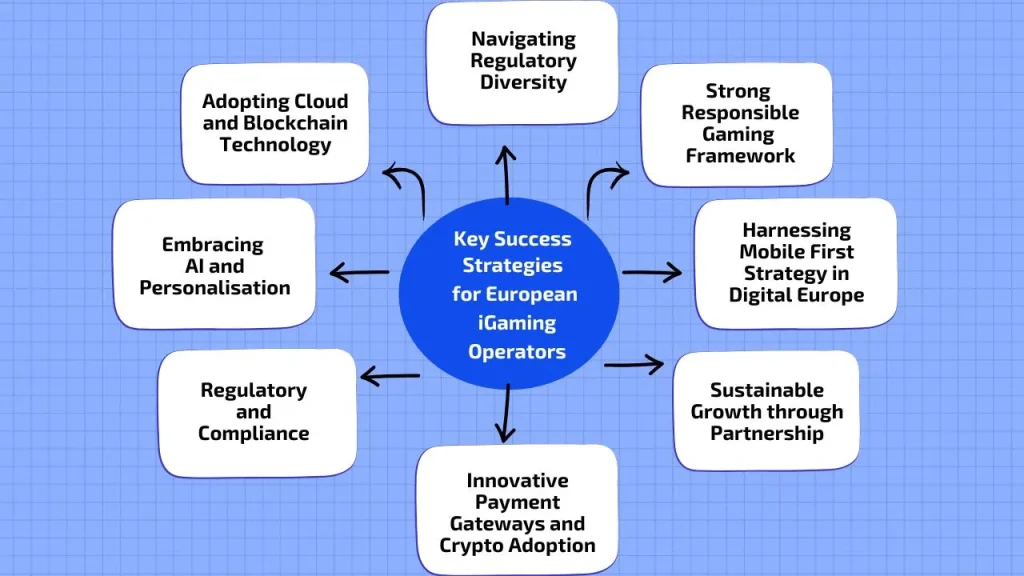
-
Regulatory and Compliance
In a highly competitive iGaming landscape, regulatory compliance can serve multiple purposes. Apart from complying with legal procedures, it fosters trust and credibility among the segmented audience, ensuring a safe, reliable, and trustworthy platform. It can also be considered a core business strategy for iGaming operators to embark on a sustainable growth journey.
-
Embracing AI and Personalisation
AI-driven personalisation is pivotal to meeting user expectations. By increasingly adopting advanced artificial intelligence and machine learning, operators can track user behaviour, customise game recommendations and bonuses, and platform content accordingly. These steps help improve player engagement and retention, making the marketing campaign more effective. Responsible gaming is also one of the attributes enabling a secure gaming environment.
-
Adopting Cloud and Blockchain Technology
There is a steady increase in European iGaming businesses further integrating cloud and blockchain technologies to enhance efficiency, security, scalability, and flexibility. iGaming operators use cloud technologies to handle large volumes of traffic, providing seamless gameplay experiences, and adhere to multiple jurisdictions. On the other hand, blockchain technology supports multiple payment gateways and promotes fast and secure transactions.
-
Navigating Regulatory Diversity
There has always been complexity in the European iGaming market, as each region has its own set of laws and regulations for the gambling market. European iGaming operators are expected to proactively counter changing legal formalities, tax reforms, advertising, and responsible gaming standards. In this process, operators can establish themselves as trustworthy and adaptable brands in the European Competitive iGaming market.
-
Strong Responsible Gaming Framework
It has become a necessity for European iGaming operators to operate with a strong responsible gaming framework platform, as it ensures a safe and secure gambling space for their players. This responsible gaming framework includes features such as deposit limit, self-exclusion options, tracking player behaviour, and a robust support system to protect vulnerable users. By aligning itself with a regulatory framework, it can build trust and enhance its reputation as an ethical brand identity.
-
Harnessing Mobile First Strategy in Digital Europe
The majority of the players are accessing iGaming platforms through smartphones. So, it is a must for European iGaming operators to have a platform that ensures a seamless experience across devices. Operators can maximise the revenue potential by optimizing gameplay, payments, and customer support for mobile users. This process leads to enhanced engagement, retention, and market reach.
-
Sustainable Growth through Partnership
In a competitive iGaming landscape, strategic partnerships and collaborating with local operators could be the key to achieving long-term sustainable growth. Establish tie-ups with technology providers, payment processors, and market affiliates to craft a compelling offering and comply with regulatory changes more effectively.
-
Innovative Payment Gateways and Crypto Adoption
iGaming operators must have an advanced payment gateway system in their platform that supports multi-currency options, with localised payment methods to meet the requirements of diverse users. By adopting modern payment solutions with integrated cryptocurrencies and blockchain payments. This enhances user experiences and increases their competitiveness in the Market.
Top 7 Countries for iGaming Operators
1. Malta
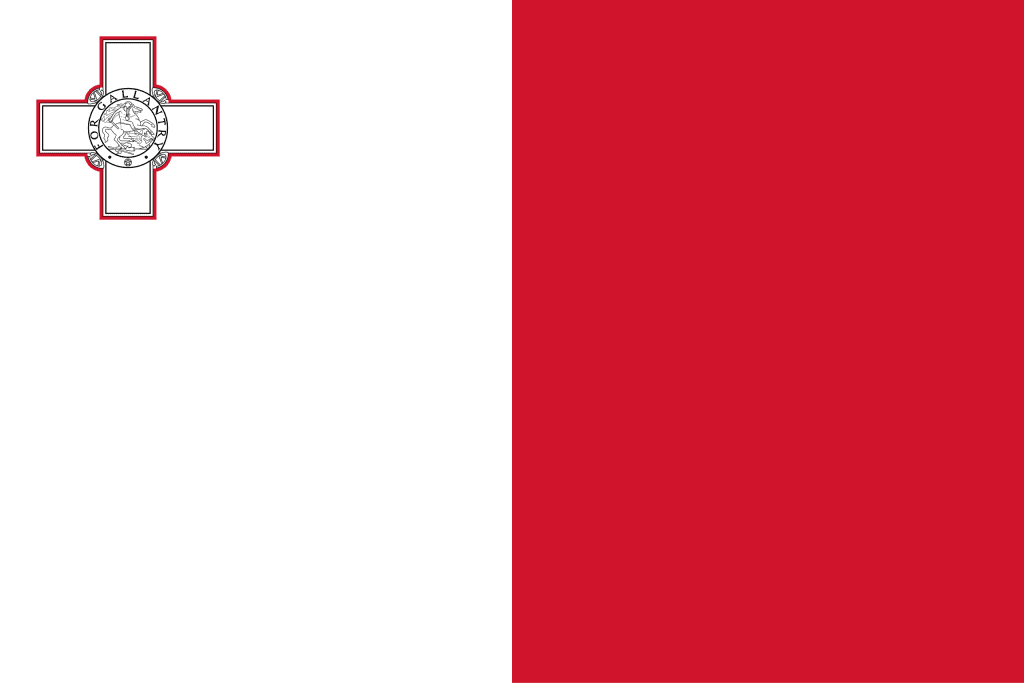
Malta is widely known as the iGaming capital of Europe for various reasons. Recently, it has become an eventful place for numerous international operators and providers. By establishing the Malta Gaming Authority (MGA), Malta became the first country to regulate gambling in 2004. The Malta Gaming Authority has set global standards for licensing, compliance, and security protocol. The region offers iGaming operators a business-friendly tax regime, skilled workforce, and modern technological infrastructure. All these aspects make it a preferable choice for operators seeking credibility and access to the larger European Market.
2. United Kingdom

The United Kingdom iGaming Market is a more mature market with a strong regulatory framework governed by the UK Gambling Commission (UKGC). The UKGC council sets high compliance standards for iGaming operators and providers. The widespread adoption of online betting and casino platforms, with access to a diverse player range, makes it an appealing choice for iGaming software providers and operators. With its strong regulatory framework, it has set a global benchmark for regulated gambling.
3. Sweden

The region is densely populated with tech-savvy users prioritising responsible gaming in the much-developed iGaming landscape. While liberalisation took effect in 2019, an open licensing system was newly formed and is regulated by the Swedish Gambling Authority. Operators and iGaming platform providers are required to integrate self-exclusion tools such as Spelpaus into the iGaming solution to ensure player protection. Sweden is a place for dynamic and innovation-driven hubs with immense opportunities for domestic and international operators adhering to strict regulations.
4. Denmark
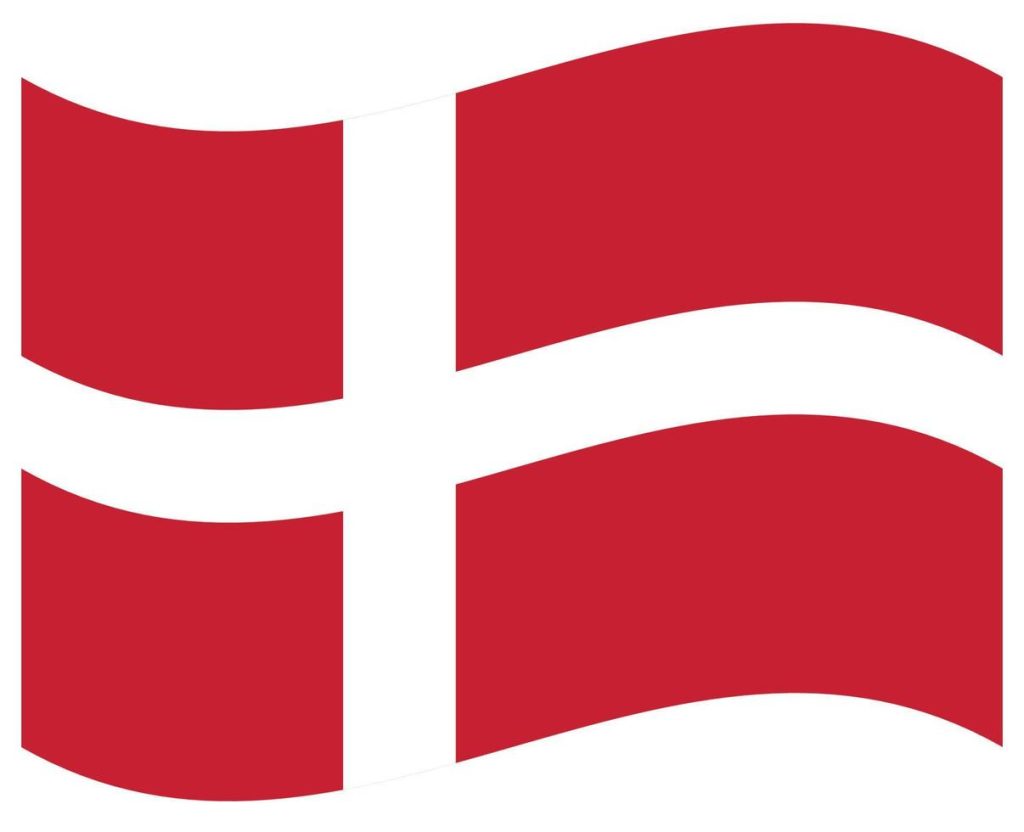
High demand for sports betting, online casinos and innovative gaming products makes the place an appealing choice for iGaming operators. In 20212, the gambling market was liberalised and is governed by the Danish Gambling Authority. Danish players mostly prefer mobile-friendly iGaming platforms. An open licensing system and balanced tax framework create a stable and business-friendly environment for exciting European iGaming platform providers and operators.
5. Spain

With opportunities for strong player demand and steady revenue growth, Spain is considered the largest online gambling market. It is a well-established iGaming market granting access to online casinos, sports betting, poker and bingo. The Director General for the Regulation of Gambling Board ensures high regulatory standards to promote fair play and responsible gambling. It attracts operators due to its diverse product offerings and increasing digital adaptation.
6. Italy

The iGaming Market has been legalised in Italy since 2011, offering licensing for various verticals, including online casinos, sports betting, poker and bingo. While there is a rigid compliance rule and a ban on gambling advertising, it seemed to attract operators with its large player base and strong revenue potential. It is a highly established and mature market with rising digital adaptation, making it a strategic play for iGaming operators targeting southern Europe.
7. Netherlands
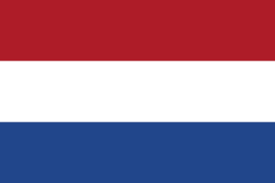
The Netherlands presents a significant growth opportunity for innovative operators adhering to compliance measures with its wealth and digitally engaged population. The uniqueness of this region is that it is an evolving market granting license to online casinos, sports betting, and poker. Operators must swiftly deal with regulatory challenges regarding advertising, player protection, and responsible gambling to experience sustainable growth.
Future of European iGaming
The future of the European iGaming market can be associated with a changing regulatory landscape, technological innovation, and a rise in player expectations. The iGaming boards across regions have been actively taking steps to enforce advanced player protection and promote fair play.
Here is the list of key trends that are reshaping the future of the European iGaming Market.
- Regulated Environment and Compliance Challenges:
- Technological Innovation Trends:
- Mobile-based Approach:
- Opportunities for New Verticals:
- Newly Regulated Markets in Multiple Regions:
Conclusion
Integrating with advanced security protocols and responsible gaming tools can enforce trust and reliability among users and boost the overall success rate of the platforms. Developing a core understanding of the region can provide valuable insights for effective marketing campaigns.
iGaming operators and platform providers must keep themselves regularly informed about emerging trends and innovations to tap into the unknown potential in the Market.
FAQs
- How big is the EU gaming market?
The European IGaming market was valued at €123.4 billion in 2024, registering 5% increase from 2023.
- What factors are primarily driving the iGaming growth in the European regions?
Factors such as a rise in mobile users, friendly regulations, and rapid integration of advanced AI features have driven iGaming growth in European regions.
- What should iGaming operators do to make marketing more effective in Europe?
The marketing campaign should comply with advertising laws to avoid legal consequences, with promotional bonuses and a simplified registration process to attract more users.
- What are the core challenges for European iGaming operators?
The core challenges for European iGaming operators include a fragmented framework, player retention, and operational complexities.
- How can gaming businesses achieve sustainable growth in Europe?
Gaming businesses should operate with more user-friendly platforms, comply with legal frameworks across multiple regions, and promote fair play.


